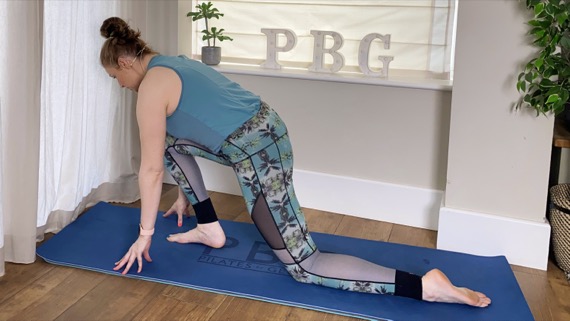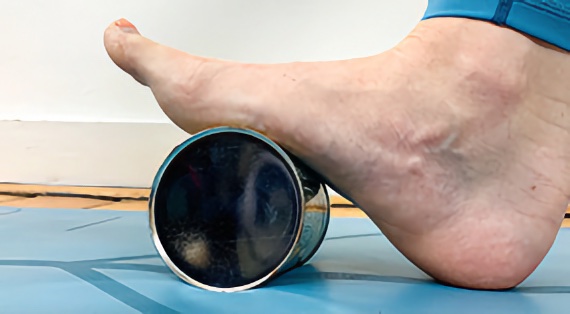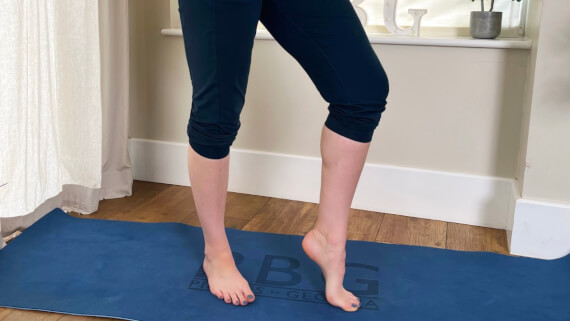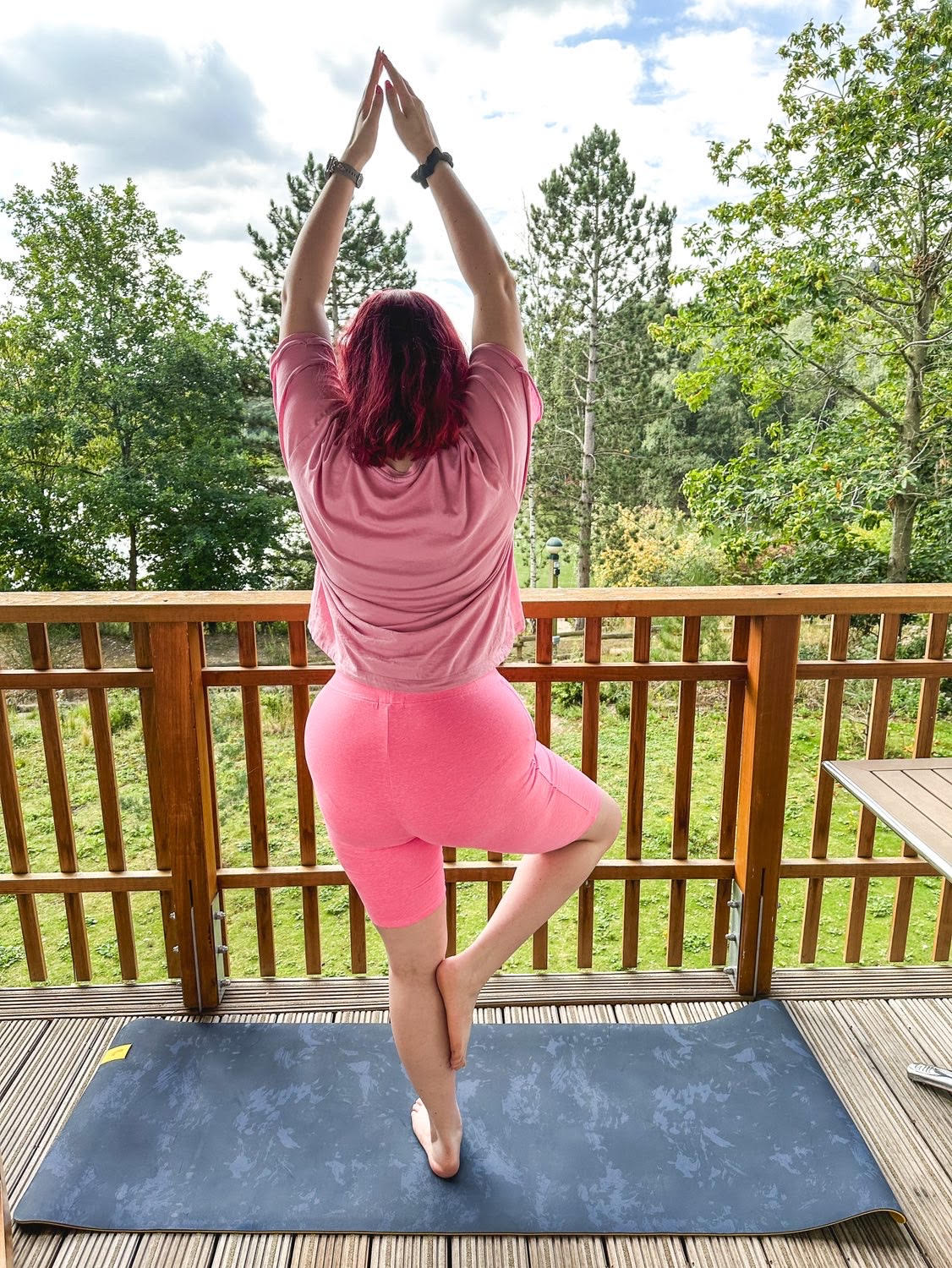Plantar Fascia Pain
What is the Plantar Fasciitis?
The plantar fascia is a band of tissue like a ligament, called fascia. It connects your heel bone (calcaneum) to the base of your toes and helps to balance the various parts of the foot and support the arch of the foot as you walk. The heel's function in walking is to absorb the shock of your foot (through fat pads) striking the ground as it is put down and to start springing you forward on the next step. Tension and stress on the fascia overtime can cause small tears. Repeated stretching and tearing of the facia can irritate or inflame it, although the cause remains unclear in many cases of plantar fasciitis.
All about Plantar Fascia Pain
Causes of Heel Pain
Usually it is due simply to constant mechanical stress and is more frequently seen in people who spend all day on their feet. Some specific causes are:
- Poor Flexibility: Stiffness of the ankle or tightness of the calf increase the stresses on the heel.
- High Arches: "cavus" feet or flat feet are less able to absorb the stress of walking and are at risk of plantar fasciitis.
- Inappropriate footwear: Unsupportive shoes will place more stress on the plantar fascia and this can irritate and inflame it.
- Injury: Injury to the heel or ankle could cause inflammatory reactions affecting the plantar fascia.
- Rheumatic conditions: Rheumatoid arthritis or ankylosing spondylitis may get inflammation anywhere a ligament is attached to bone and plantar fasciitis is part of their general condition.
- Bony heel spurs: Occasionally extra bone may form off the heel bone producing a small "spur". These "heel spurs" are often seen in people with plantar fasciitis, but they can also be found in people with no heel pain. The heel spur is caused by the same process as the heel pain, but the spur is not itself the cause of the pain.
Heel and Foot Pain Symptoms
For all causes the symptoms are very similar.
- Tenderness beneath the heel on the underside which can radiate into the arch of the foot.
- Stiffness and discomfort when rising in the morning and first standing on it or after rest/inactivity like sitting for a long period.
- Gentle exercises may ease things a little as the day goes by, but a long walk often makes the pain worse.
Treatment of Plantar Fasciitis
Early Advice
- Rest: Activity Modification - Avoid impact exercises, try not to walk barefoot on hard surfaces.
- Ice: If swollen and inflamed - apply a covered ice pack to the injury for up to 20 minutes 2 or 3 times a day.
- Support: Wear shoes with cushioned heels and good arch support.
- Stretch: Stretch and mobilise the foot, ankle and calf (see the QuickFix class).
Do watch the PBG information class on Plantar Fascia pain and then try the QuickFix exercise class to learn how to safely stretched relieve the discomfort.
Free Class: Quick Fix for Plantar Fascia Pain
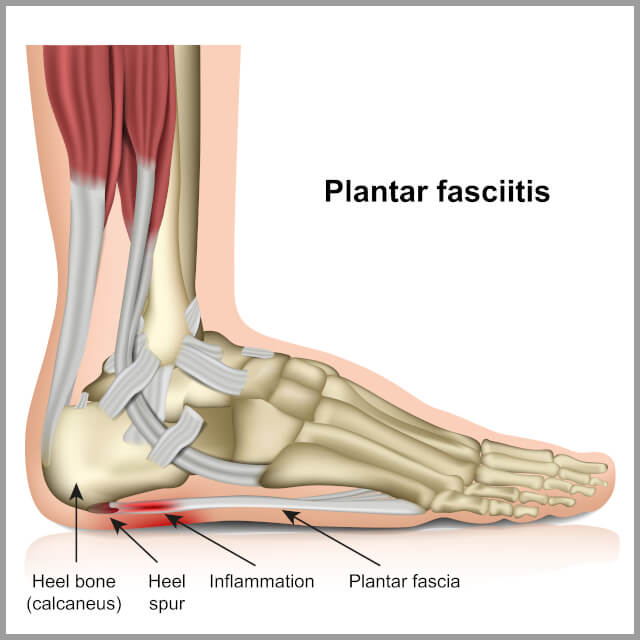
 Physio Tip!
Physio Tip!
Night Splints
Wearing a splint on your ankle at night (keeping your foot passively flexed) can prevent your calf tightening while you are asleep. This is often very effective in improving the severe pain that you may suffer first thing in the morning and help to possibly break the pain cycle.
Alert!
Contact your healthcare provider if:
- You have pain in the bottom of your foot that is severe or stopping you doing normal activities
- The pain is getting worse or keeps coming back
- The pain has not improved after treating it yourself for 2 weeks
- You have any tingling or loss of feeling in your foot
- You have diabetes and foot pain; foot problems can be more serious if you have diabetes.
